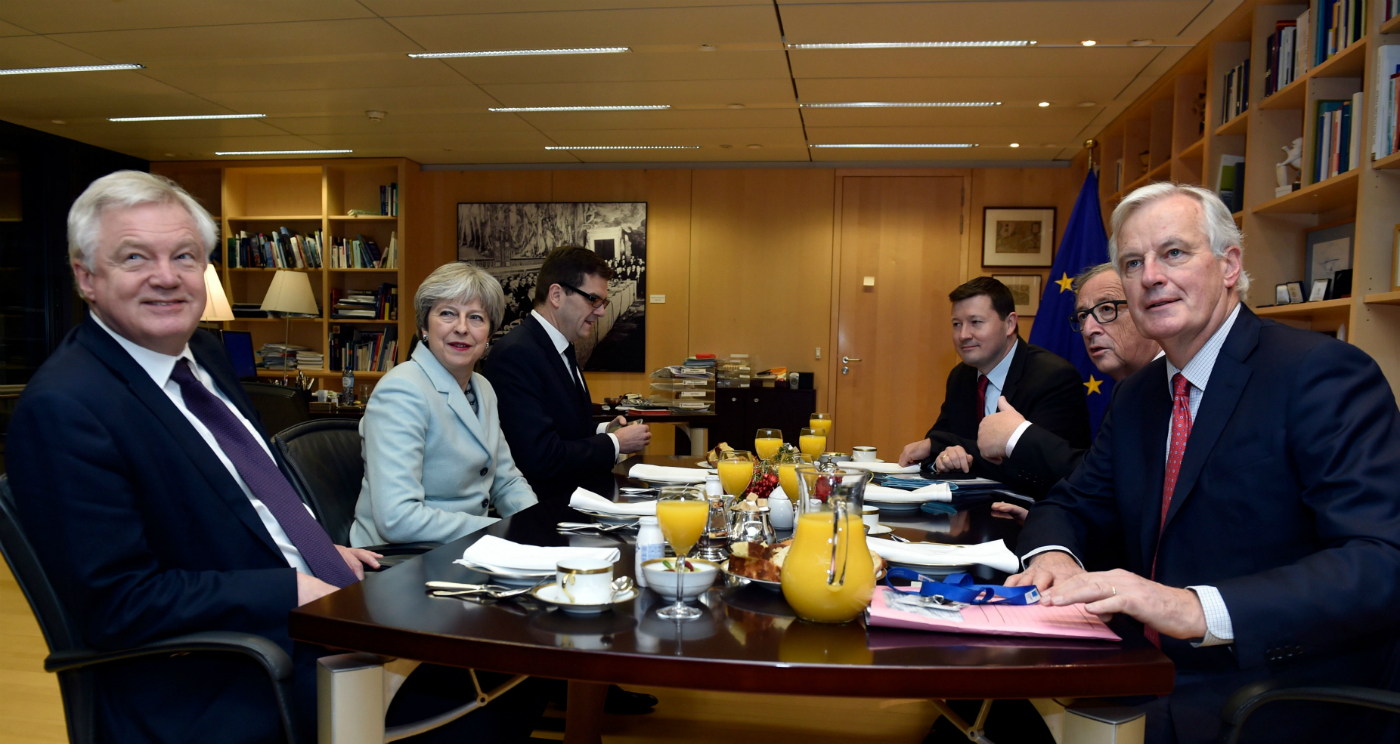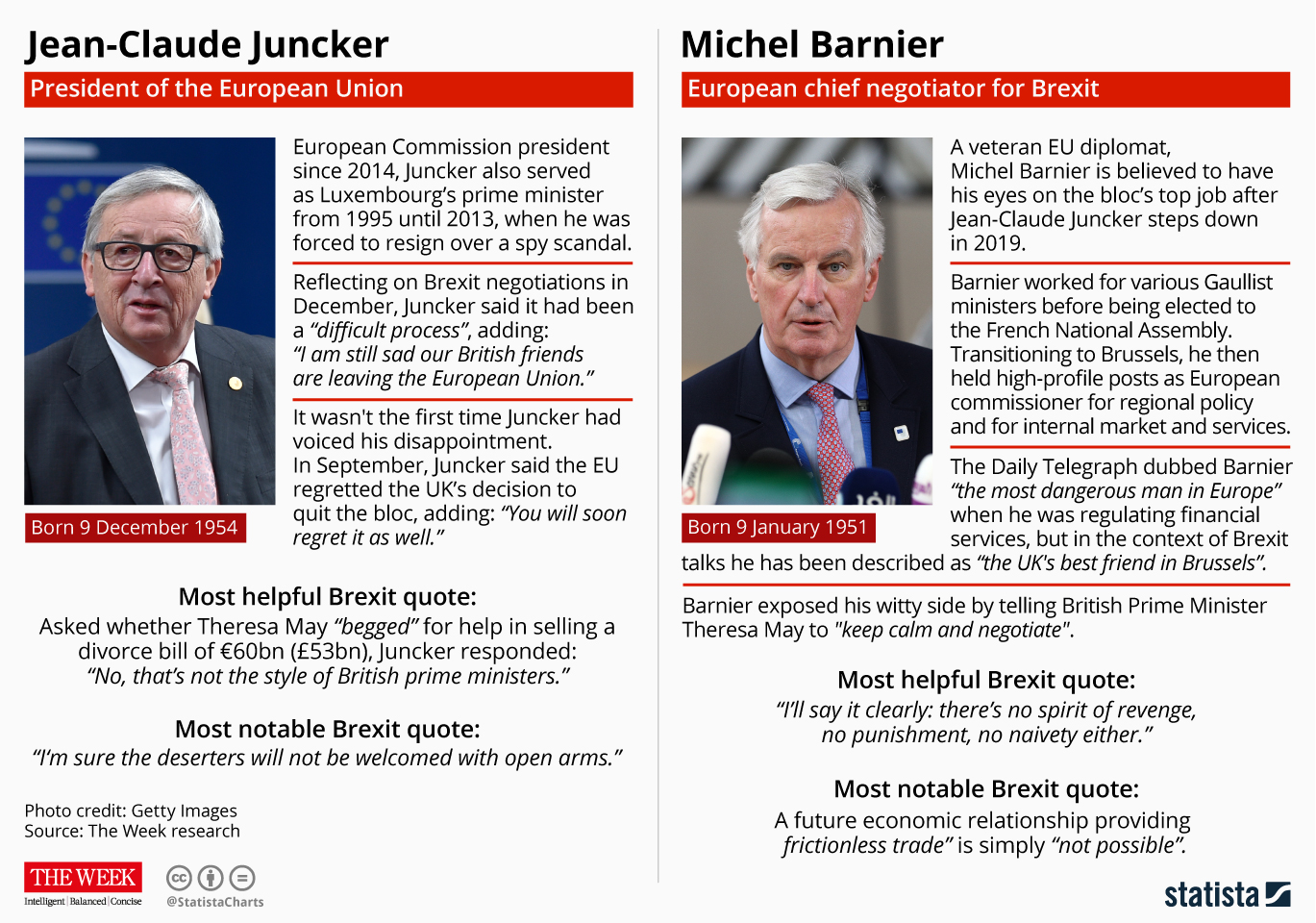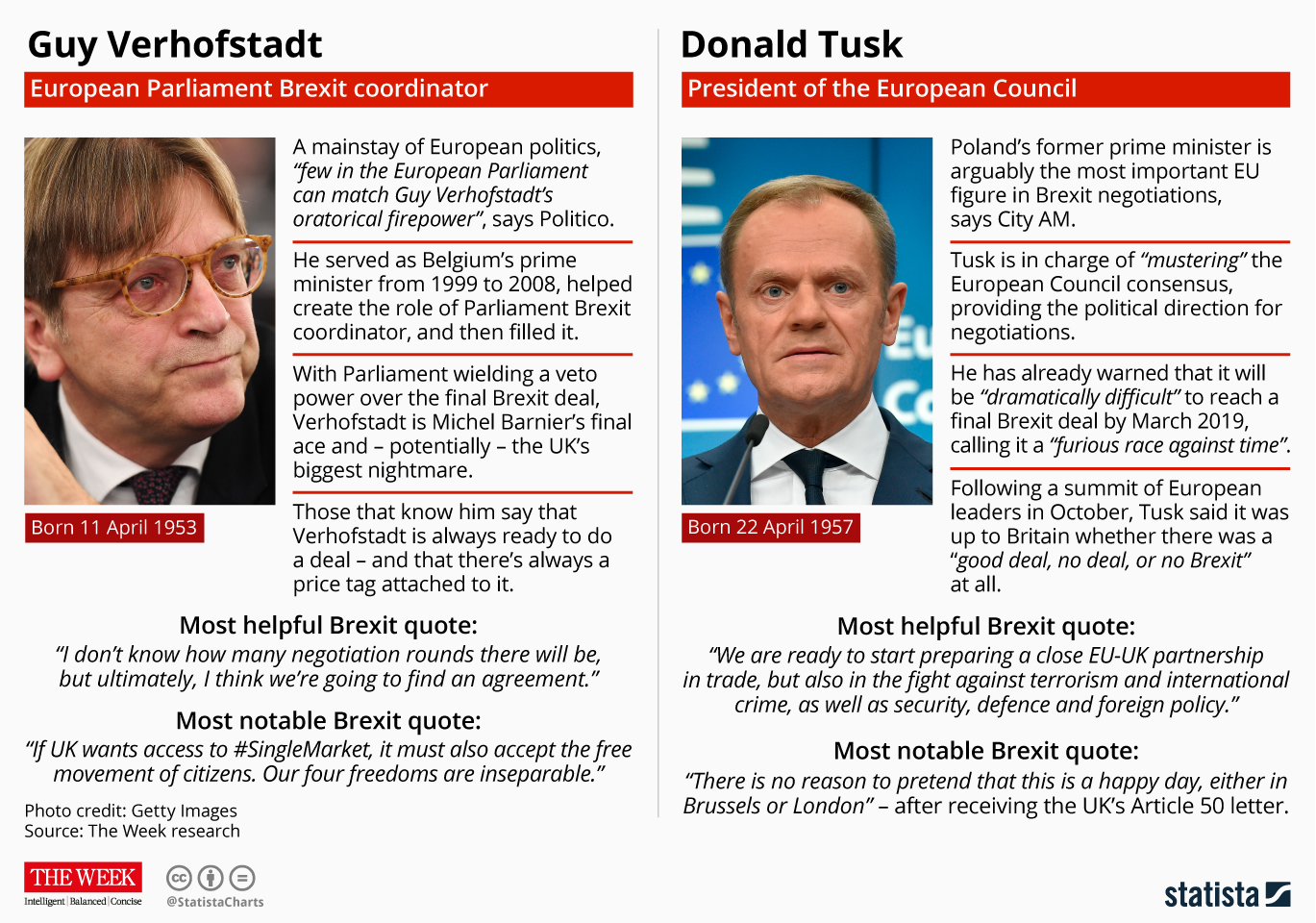Brexit negotiations: who are the EU devils in the detail?
In Depth: the formidable EU team hammering out a deal with Britain

A free daily email with the biggest news stories of the day – and the best features from TheWeek.com
You are now subscribed
Your newsletter sign-up was successful
They may not be in the spotlight but behind-the-scenes negotiators will play a key role in thrashing out the Brexit deal before it is approved by the UK and the 27 remaining EU nations.
Much has been written about former SAS reservist and UK Brexit Secretary David Davis and his squad of civil servants, led by the enigmatic Oliver Robbins.
But the EU’s crack negotiating team has received comparatively little attention.
The Week
Escape your echo chamber. Get the facts behind the news, plus analysis from multiple perspectives.

Sign up for The Week's Free Newsletters
From our morning news briefing to a weekly Good News Newsletter, get the best of The Week delivered directly to your inbox.
From our morning news briefing to a weekly Good News Newsletter, get the best of The Week delivered directly to your inbox.
So who are they and what do they bring to the table?
Jean-Claude Juncker, European Commision president
European Commission president since 2014, Jean-Claude Juncker also served as Luxembourg’s prime minister for 18 years, from 1995 until 2013, before being forced to resign over a spy scandal.
Juncker’s economic policies as PM ensured Luxembourgers were among the richest citizens of the EU and were the main reason for his election as Commission president, says The Independent.
A free daily email with the biggest news stories of the day – and the best features from TheWeek.com
Juncker and Theresa May have clashed over several Brexit issues, including whether the European Court of Justice should have an ongoing role in the UK, Sky News reports.
Michel Barnier, chief Brexit negotiator
Veteran French diplomat Michel Barnier is believed to have his eyes on the bloc’s top job, which will be vacated by Juncker in 2019.
Transitioning to Brussels, Barnier has held the high-profile posts of European commissioner for regional policy, and for internal market and services.
Arguably, Barnier’s career should have ended in 2005, Politico says, when he was fired as French foreign minister following a disastrous referendum in which French voters rejected a new EU treaty - a vote Barnier predicted would be won.
In his role as the commissioner in charge of EU financial regulation, Barnier was dubbed “the most dangerous man in Europe” by The Daily Telegraph.
But as chief Brexit negotiator, he has been widely described as “the UK’s best friend in Brussels” - adopting a soft approach among the 27 EU countries to reach an agreement with the UK. Barnier has also revealed a witty side to his character, telling British Prime Minister Theresa May to “keep calm and negotiate”.

Donald Tusk, European Council president
Poland’s former PM is, arguably, the most important EU figure in Brexit negotiations, according to City AM.
Tusk tried to find a deal that would keep the UK in the EU, and was, the BBC says, “apocalyptic” when he warned that the UK exit could end "in the destruction of not only the EU but also Western political civilisation in its entirety”.
Tusk has garnered attention with contentious comments including: “The only real alternative to a hard Brexit is no Brexit” and “Your argument has nothing to do with reality.”
Guy Verhofstadt, European Parliament Brexit coordinator
Guy Verhofstadt served as Belgian Prime Minister from 1999 to 2008, then “maneuvered” to create the role of Parliament Brexit coordinator - and filled it himself, says Politico.
He will be crucial in the latter stage of negotations: MEPs must ratify the final Brexit deal - or veto it - so Verhofstadt’s role could prove to be a game changer, The Guardian says. Politico calls him “potentially, the UK’s worst nightmare”, but Verhofstadt has indicated that he wants an agreement.
“With Brexit, both sides have an interest to have an agreement and a deal, and we cannot be too nervous about the fact that after the first negotiation round we didn’t find the final agreement,” Verhofstadt has said. “I don’t know how many negotiation rounds there will be, but ultimately, I think we’re going to find an agreement.”

The rest
Didier Seeuws is head of the “Brexit task force” of EU negotiators. Another veteran Belgian diplomat with experience of complex EU negotiations, Seeuws is described as “exceptionally hard-working and combining an impressive grasp of technical detail with considerable political savvy”, says The Guardian.
Martin Selmayr is the most powerful Brussels bureaucrat you’ve never heard of. A workaholic German lawyer, he is Juncker’s chief of staff – some say enforcer. Selmayr is admired for his brain but has been accused of hoarding power. “Selmayr brooks no resistance and is adamant the bloc must shield itself from any Brexit fallout,” The Guardian says.
Sabine Weyand is second in command to Barnier on the commission’s Brexit task force and will be a key fixer in the nuts and bolts section of Brexit. One Brussels lobby group “predicted Weyand was unlikely to give much ground in trade talks on any UK hopes of a la carte access to the EU, particularly any weakening of the EU single market ideal of free movement”, says the BBC News website.
Infographics by www.statista.com/chartoftheday for TheWeek.co.uk
-
 6 of the world’s most accessible destinations
6 of the world’s most accessible destinationsThe Week Recommends Experience all of Berlin, Singapore and Sydney
-
 How the FCC’s ‘equal time’ rule works
How the FCC’s ‘equal time’ rule worksIn the Spotlight The law is at the heart of the Colbert-CBS conflict
-
 What is the endgame in the DHS shutdown?
What is the endgame in the DHS shutdown?Today’s Big Question Democrats want to rein in ICE’s immigration crackdown
-
 Epstein files topple law CEO, roil UK government
Epstein files topple law CEO, roil UK governmentSpeed Read Peter Mandelson, Britain’s former ambassador to the US, is caught up in the scandal
-
 Iran and US prepare to meet after skirmishes
Iran and US prepare to meet after skirmishesSpeed Read The incident comes amid heightened tensions in the Middle East
-
 Grok in the crosshairs as EU launches deepfake porn probe
Grok in the crosshairs as EU launches deepfake porn probeIN THE SPOTLIGHT The European Union has officially begun investigating Elon Musk’s proprietary AI, as regulators zero in on Grok’s porn problem and its impact continent-wide
-
 Israel retrieves final hostage’s body from Gaza
Israel retrieves final hostage’s body from GazaSpeed Read The 24-year-old police officer was killed during the initial Hamas attack
-
 China’s Xi targets top general in growing purge
China’s Xi targets top general in growing purgeSpeed Read Zhang Youxia is being investigated over ‘grave violations’ of the law
-
 Panama and Canada are negotiating over a crucial copper mine
Panama and Canada are negotiating over a crucial copper mineIn the Spotlight Panama is set to make a final decision on the mine this summer
-
 Europe moves troops to Greenland as Trump fixates
Europe moves troops to Greenland as Trump fixatesSpeed Read Foreign ministers of Greenland and Denmark met at the White House yesterday
-
 Why Greenland’s natural resources are nearly impossible to mine
Why Greenland’s natural resources are nearly impossible to mineThe Explainer The country’s natural landscape makes the task extremely difficult